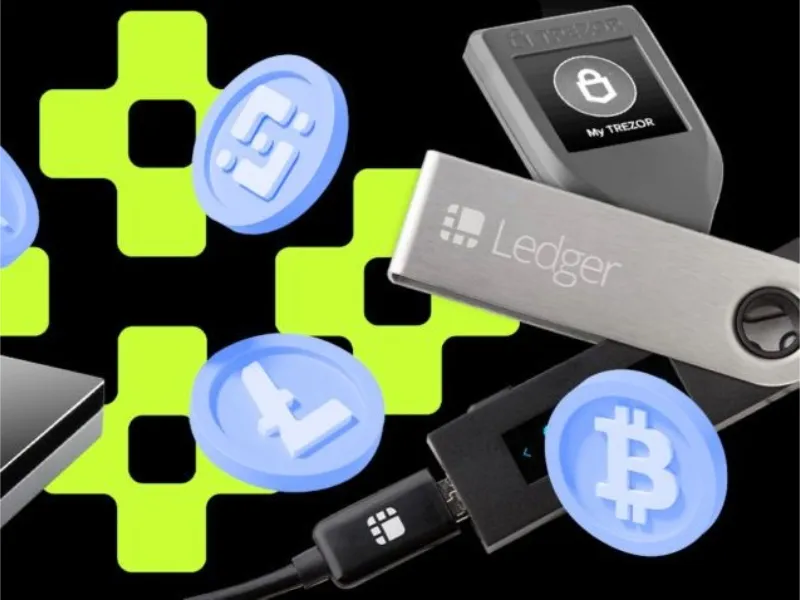- A crypto wallet is a software or hardware device used to store, send, and receive cryptocurrencies.
- A crypto ledger usually refers to a hardware device specifically designed to securely store the private keys of a cryptocurrency.
Crypto Ledger and Crypto Wallet, despite their similar names, are actually two different things, both tools for managing private keys to cryptocurrencies, but with significant differences in functionality and usage.
What is crypto Ledger
Crypto ledger usually refers to a hardware device specifically designed to securely store the private key of a cryptocurrency. Their main function is to provide secure offline storage to prevent private keys from being hacked or compromised by malware.
A crypto ledger is a physical device, usually in the form of a USB drive or similar, similar to an ordinary USB device or dedicated hardware wallet. They are designed to provide as high security as possible and protect private keys through hardware-level security elements such as security chips.
The crypto ledger is mainly used for users who hold cryptocurrencies for a long time, or users who need a high level of security protection. They usually do not have the function of direct trading, but are used to store and protect private keys, which users need to import into an online wallet or exchange in order to carry out trading operations.
Also read: Cracking the code: The truth about crypto wallet case sensitivity
What is crypto wallet
Crypto wallet is a software or hardware device used to store, send and receive cryptocurrencies. It manages cryptocurrencies’ private keys, which are key to accessing and controlling users’ assets on the blockchain.
Crypto wallets allow users to conduct transactions and manage assets by connecting to a blockchain network.
Crypto wallets can be software wallets (such as online wallets, desktop wallets, mobile wallets) or hardware wallets (such as hardware devices, such as Ledger Nano S). They can be connected to the Internet (hot wallet) or kept offline (cold wallet).
The security of a crypto wallet depends on its type and the security measures implemented. Hot wallets are usually connected online and have low security, making them vulnerable to cyber attacks. Cold wallets are generally considered more secure because they store private keys offline.
Also read: Types of crypto wallets: Understanding your best options
Compare hot wallet with cold wallet
1. Security: The online connection of hot wallets increases the risk of being attacked, and although modern hot wallets provide multiple levels of security measures, such as encrypted storage, two-factor authentication, etc., there are still certain security risks. In contrast, cold wallets are more reliable and stable in terms of security because they store private keys offline.
2. Convenience: Hot wallets are obviously superior to cold wallets because of their convenience and immediacy. Users can access and manage assets through the Internet anytime, anywhere, for fast trading operations. Cold wallets, while highly secure, require additional steps and actions when used, such as importing a private key into an online device in order to conduct a transaction.
3. Application scenarios: Hot wallets are suitable for users who need frequent transactions and quick access to assets, such as daily purchases or trading activities. Cold wallets are more suitable for long-term holding and custody of assets, such as long-term investors or users with high security requirements.

